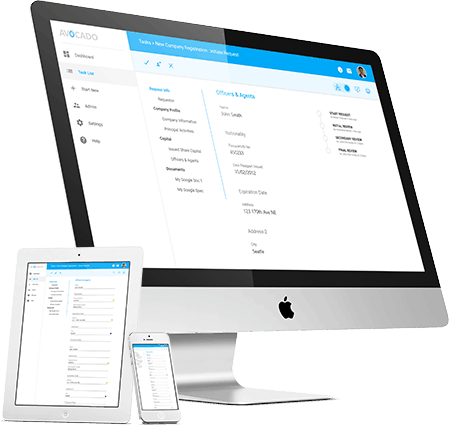Welcome to the February 2024 edition of the Singapore Regulatory Update. This month brings significant updates, including tax revisions outlined in Budget 2024, the introduction of Enterprise Disbursements, and the launch of Singapore’s New Refundable Investment Credit Scheme. Additionally, heightened scrutiny on company directorship requirements and updates on CRS participating jurisdictions are covered, along with other regulatory changes relevant to Singapore company owners. Stay informed with our concise overview of these regulatory developments shaping Singapore’s business landscape.
Budget 2024: Key Tax Changes
Budget 2024 introduces pivotal tax changes aimed at bolstering Singapore’s economic resilience and attractiveness for investments. Among these changes, notable adjustments include a Corporate Income Tax (CIT) Rebate for the Year of Assessment (YA) 2024, offering eligible companies a significant boost. Additionally, enhancements to the tax deduction for Renovation or Refurbishment (R&R) expenditure and the introduction of the Refundable Investment Credit (RIC) scheme aim to alleviate compliance burdens and foster investment growth. Implementation of the Income Inclusion Rule (IIR) and Domestic Top-up Tax (DTT) under Pillar Two of the Base Erosion and Profit Shifting (BEPS) initiative further enhances Singapore’s tax framework, ensuring fairness and competitiveness in the global landscape. For more detailed information on these tax changes, please visit the IRAS website.
Singapore’s New Refundable Investment Credit Scheme
The newly introduced Refundable Investment Credit (RIC) offers a unique approach to supporting companies’ investment endeavors. Designed as a tax credit with a cash refund feature, the RIC is granted based on qualifying expenditures incurred by a company over a span of up to 10 years, covering various areas such as capital expenditure, manpower, and training costs. Under this scheme, Singapore companies can receive support of up to 50 percent on each category of expenditure. Notably, any unutilized credits will be refunded to the company in cash within four years from the time the conditions for receiving the credits are met. This innovative scheme aligns with Global Anti-Base Erosion Rules for Qualified Refundable Tax Credits (QRTCs), positioning Singapore as a competitive investment destination.
Experts view the RIC as a strategic move to bolster Singapore’s appeal to global investors in the post-BEPS 2.0 era. Grant Thornton’s Sandison emphasizes its role in leveling the playing field amidst evolving international tax frameworks, while KPMG Singapore’s Sanganeria highlights its broad support for various project activities, including manufacturing, innovation, R&D, and green initiatives. Looking ahead, Deloitte Singapore’s Gan suggests that expanding the RIC to include output-based features could further enhance its effectiveness in supporting companies across diverse sectors, making it an even more impactful incentive in the evolving investment landscape.
Introduction of Enterprise Disbursements in Budget 2024
The Introduction of Enterprise Disbursements in Budget 2024 marks a significant step towards supporting both workers and businesses amidst evolving economic landscapes. One of the key initiatives, the CPF Transition Offset (CTO), addresses the impending rise in senior workers’ CPF contribution rates scheduled for 2025. This offset provides relief to employers by covering half of the increase in employer CPF contribution rates, thus mitigating the impact of rising operational costs. Alongside the CTO, enhancements to the Progressive Wage Credit Scheme (PWCS) have been introduced, aiming to uplift lower-wage workers while supporting businesses in their wage obligations. These enhancements include raised co-funding levels for wage increases, expanded wage ceilings, and the introduction of a wage cut-off for eligibility, ensuring a fair and targeted approach to wage support.
Furthermore, the PWCS enhancements, such as increased co-funding levels and adjusted wage ceilings, seek to incentivize businesses to invest in their workforce while ensuring that support is directed towards those who need it most. For detailed information on these schemes and their implementation, businesses and stakeholders are encouraged to visit the IRAS website, where comprehensive guidance and resources are provided.
Increased Scrutiny on Company Directorship Requirements
As corporate governance becomes increasingly paramount in Singapore’s business landscape, there is a growing emphasis on tightening regulations and enhancing training for board directors. Recent discussions highlight the need for more rigorous measures to ensure directors fulfill their duties diligently. Suggestions such as mandatory training hours, performance appraisals, and capping the number of directorships aim to instill greater accountability and vigilance among directors. Notably, recent legal cases, such as the High Court’s ruling against a former non-executive director of Inter-Pacific Petroleum, underscore the consequences of neglecting directorial responsibilities.
Market observers stress the importance of self-discipline and continuous learning for directors, emphasizing the need to stay well-informed about legal and regulatory obligations. Proposals for a structured appointment process and potential caps on directorships aim to improve board effectiveness and mitigate risks associated with directorial oversight. Despite varying opinions on the necessity of imposing caps, there is consensus on the importance of fostering a culture of responsibility and accountability within companies, driven by both individual directors and the company’s leadership.
Updated List of Participating Jurisdictions for CRS
Singapore continues its commitment to international tax transparency through the implementation of the Common Reporting Standard (CRS), aimed at combating tax evasion and ensuring tax compliance. As part of this framework, Reporting Singapore Financial Institutions (SGFIs) are mandated to register for CRS with the Inland Revenue Authority of Singapore (IRAS) and conduct due diligence on all financial accounts, reporting relevant information annually. Individuals holding accounts with Reporting SGFIs may also be affected by CRS requirements. Notably, the list of participating jurisdictions for CRS has been updated, with Kenya and Thailand being added while Niue has been removed. This update underscores the dynamic nature of international tax regulations and necessitates compliance adjustments for affected entities. Reporting SGFIs must adhere to the updated list and ensure timely submission of CRS information by the specified deadline to maintain regulatory compliance and avoid potential repercussions.
Enhanced Powers Granted to IRAS for Grant Administration and Fraud Investigation
The Inland Revenue Authority of Singapore (IRAS) has been bestowed with augmented authority to administer public schemes and investigate instances of fraud and abuse pertaining to enterprise grants. Formalized through the IRAS (Amendment) Bill, this expansion recognizes IRAS as a grant disbursement agency alongside its existing role as a tax administrator. With its increased mandate, IRAS will possess enhanced capabilities to scrutinize serious grant offenses, including access to premises, document seizure, and arrest powers. Moreover, it will now be an offense to obstruct or refuse compliance with IRAS investigations, with penalties of up to S$10,000 or 12 months’ imprisonment for offenders.
The amendments underscore IRAS’ vital role in disbursing grants to businesses, particularly amid crises like the COVID-19 pandemic. This legislative reinforcement aligns IRAS’ enforcement powers for grant-related offenses with its existing authority in tax matters. Notably, stringent penalties have been established for offenses related to grant abuse, ensuring commensurate consequences for offenders. Furthermore, IRAS will institute measures to facilitate the timely return of overpaid grant amounts, emphasizing the responsible stewardship of public funds. The legislation also prioritizes the protection of whistleblowers and informers, safeguarding their identities throughout the investigative process.
Skills Development Levy Integration into GoBusiness Platform
Effective from January 31, 2024, the Skills Development Levy (SDL) has been seamlessly integrated into the GoBusiness platform, streamlining access to essential information and services for employers. The SDL, a mandatory levy payable by employers for all employees, including foreign workers, complements monthly CPF contributions. Previously, business owners accessed SDL services via a dedicated website. However, in alignment with GoBusiness’ objective of providing comprehensive employer-related services, users can now conveniently access SDL resources and conduct transactions, such as payment submissions and filing Notices of Objection, directly through the GoBusiness platform. For comprehensive SDL information and service accessibility, employers are encouraged to log in to GoBusiness.
Transformative Projects by Enterprise Singapore for Companies’ Revenue Growth and Job Creation
Enterprise Singapore (EnterpriseSG) recently released a press release detailing its significant contributions to Singaporean enterprises amid challenging global conditions. In 2023, over 18,000 local companies received support, with 3,000 embarking on transformative projects. These initiatives are projected to boost annual revenue by S$16.4 billion and create 21,500 jobs. Key areas of focus included internationalization, innovation, and cost optimization.
Through efforts in internationalization, including overseas projects and competency development, companies are set to expand their global presence, contributing S$5.2 billion in revenue growth. Additionally, investments in innovation, such as new Global Innovation Alliance (GIA) nodes and Open Innovation Challenges (OICs), are expected to generate S$1.0 billion in revenue through the development of new products and services.
Furthermore, initiatives to enhance operational efficiency and competitiveness are projected to yield S$10.2 billion in revenue growth. Looking ahead to 2024, EnterpriseSG aims to continue supporting businesses in entering new markets, fostering innovation, and strengthening cost competitiveness to ensure sustained growth and resilience in Singapore’s business landscape.
Considering Establishing Your Business in Singapore?
At CorporateServices.com, we are your reliable partners in setting up your business presence in Singapore, a global financial hub known for its strong regulatory framework and conducive business environment. As Singapore strengthens its regulatory landscape, our extensive range of Singapore incorporation services guarantees a smooth and compliant entry into this dynamic market.
About CorporateServices.com
Headquartered in Singapore, CorporateServices.com, empowers global entrepreneurs with information and tools necessary to discover Singapore as a destination for launching or relocating their startup venture and offers a complete range of company incorporation, immigration, accounting, tax filing, and compliance services in Singapore. The company combines a cutting-edge online platform with an experienced team of industry veterans to offer high-quality and affordable services to its customers. Contact Us if you need assistance with setting up a new Singapore company or if you would like to transfer the administration of your existing company to us.
Share this Post

